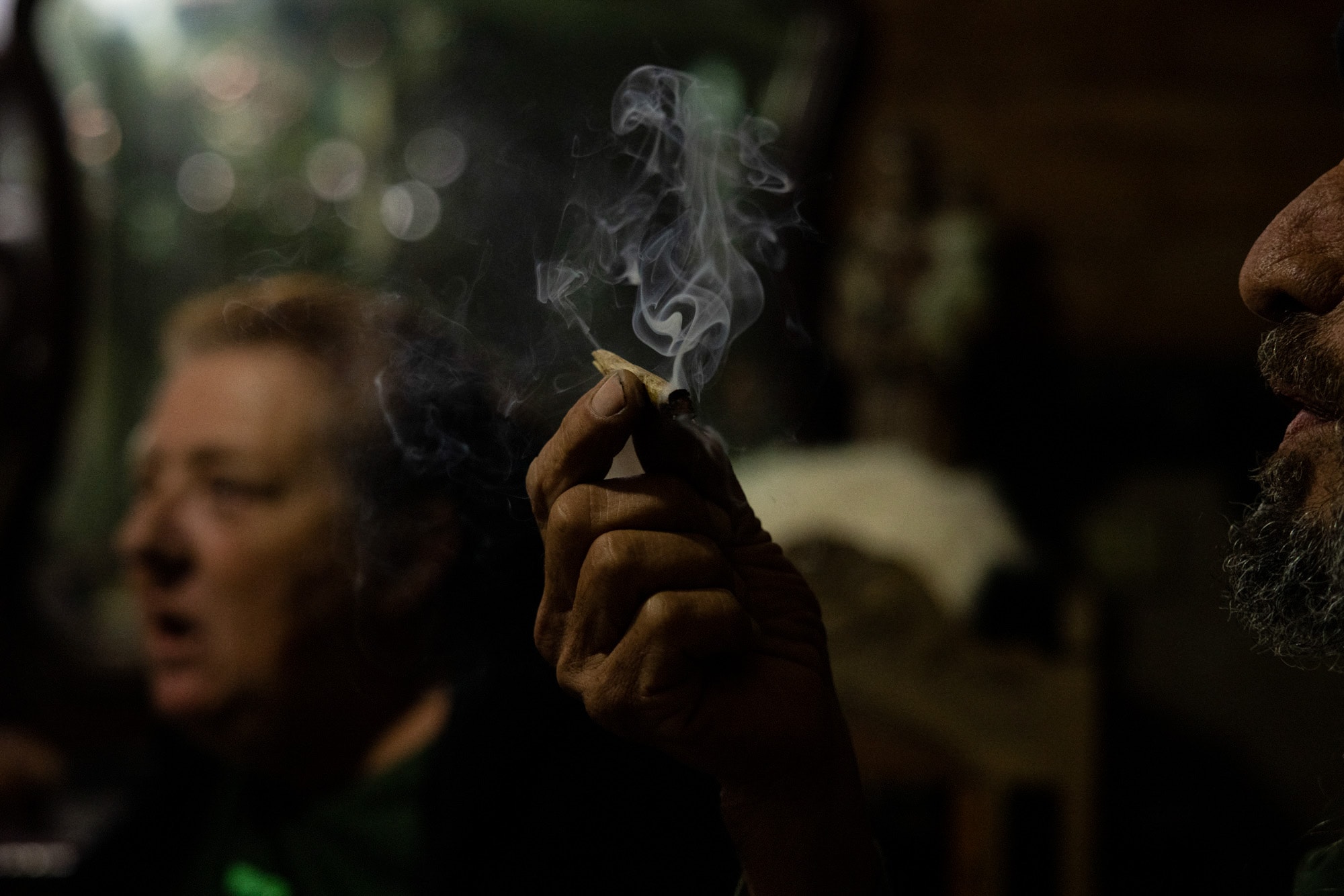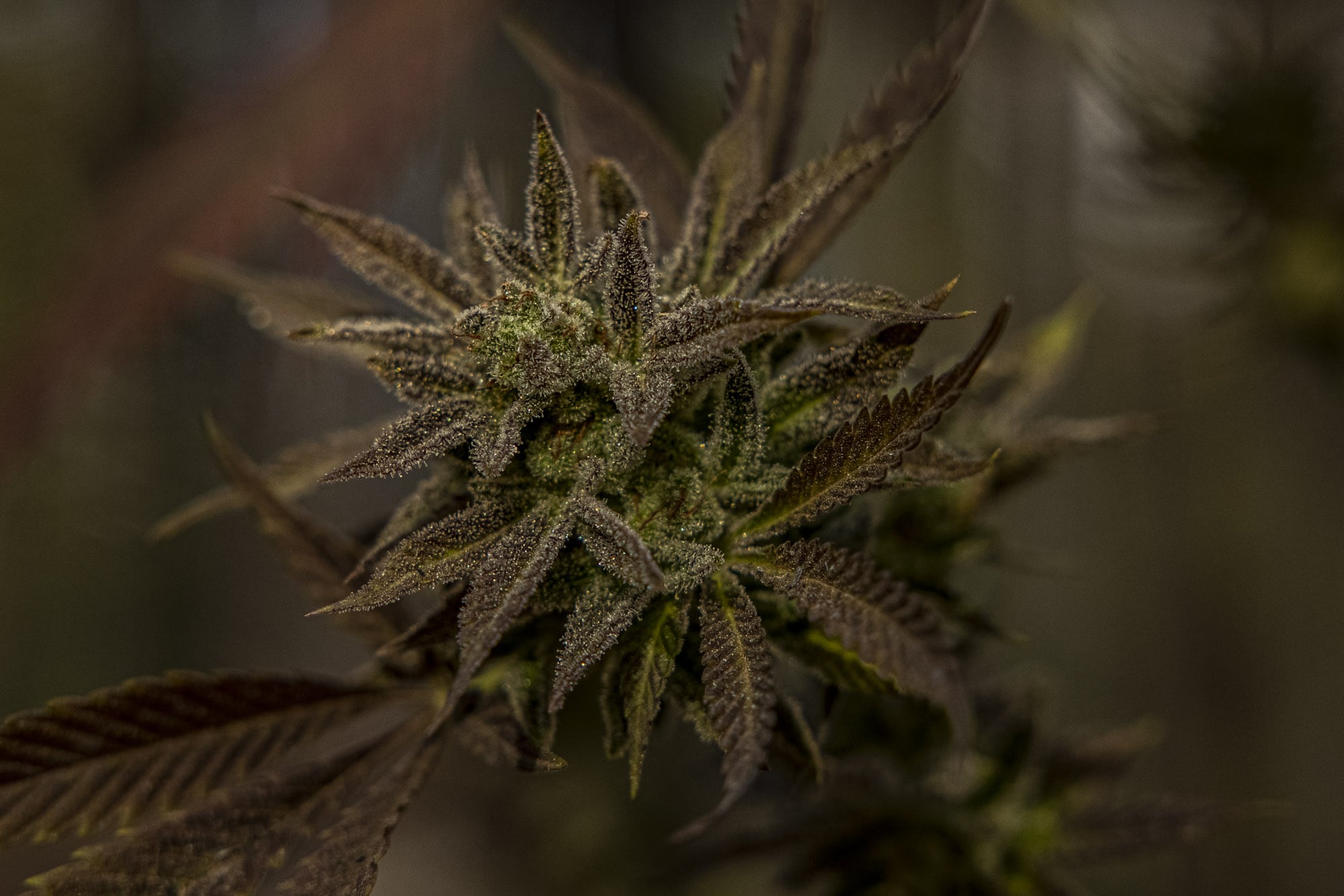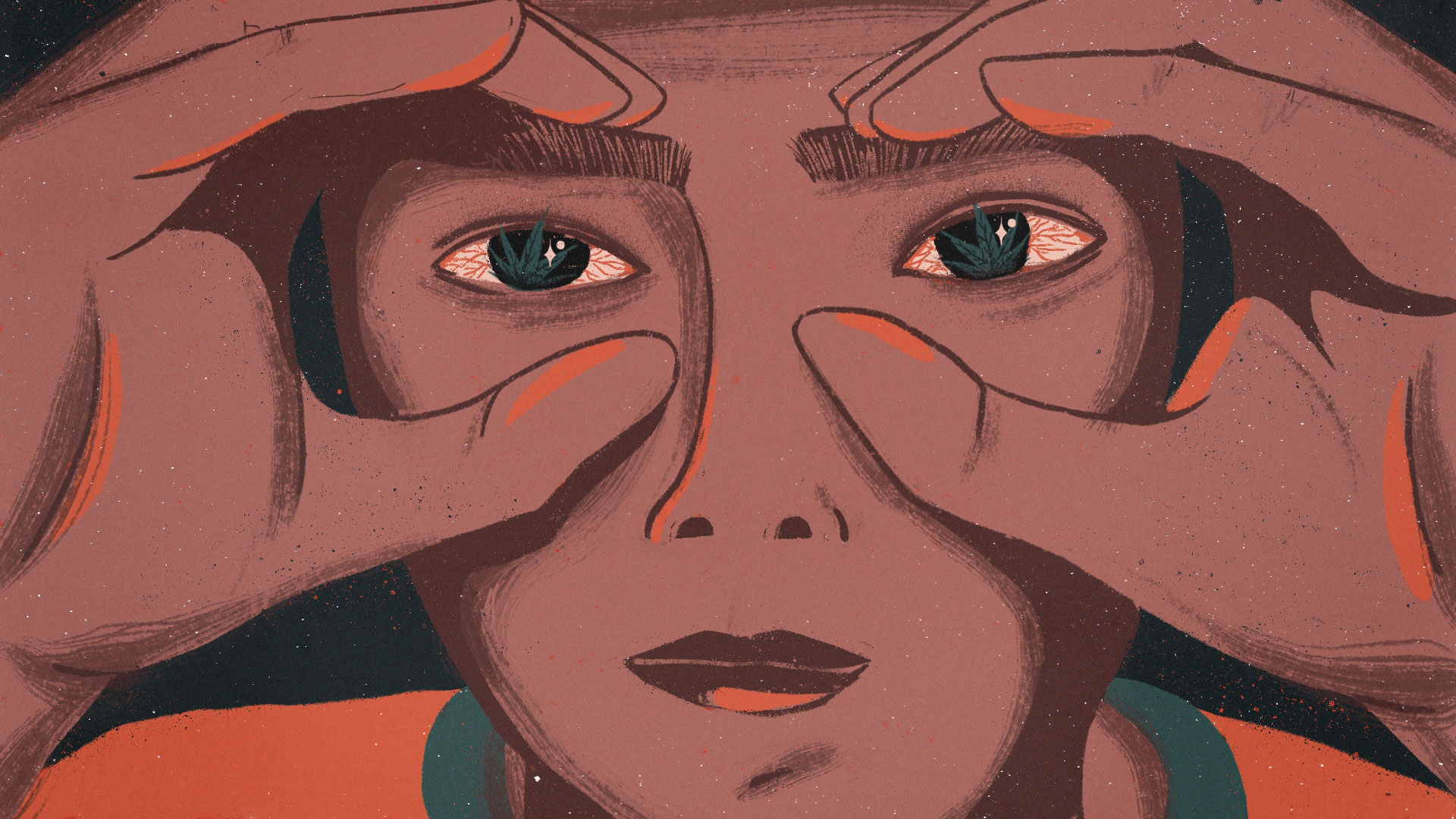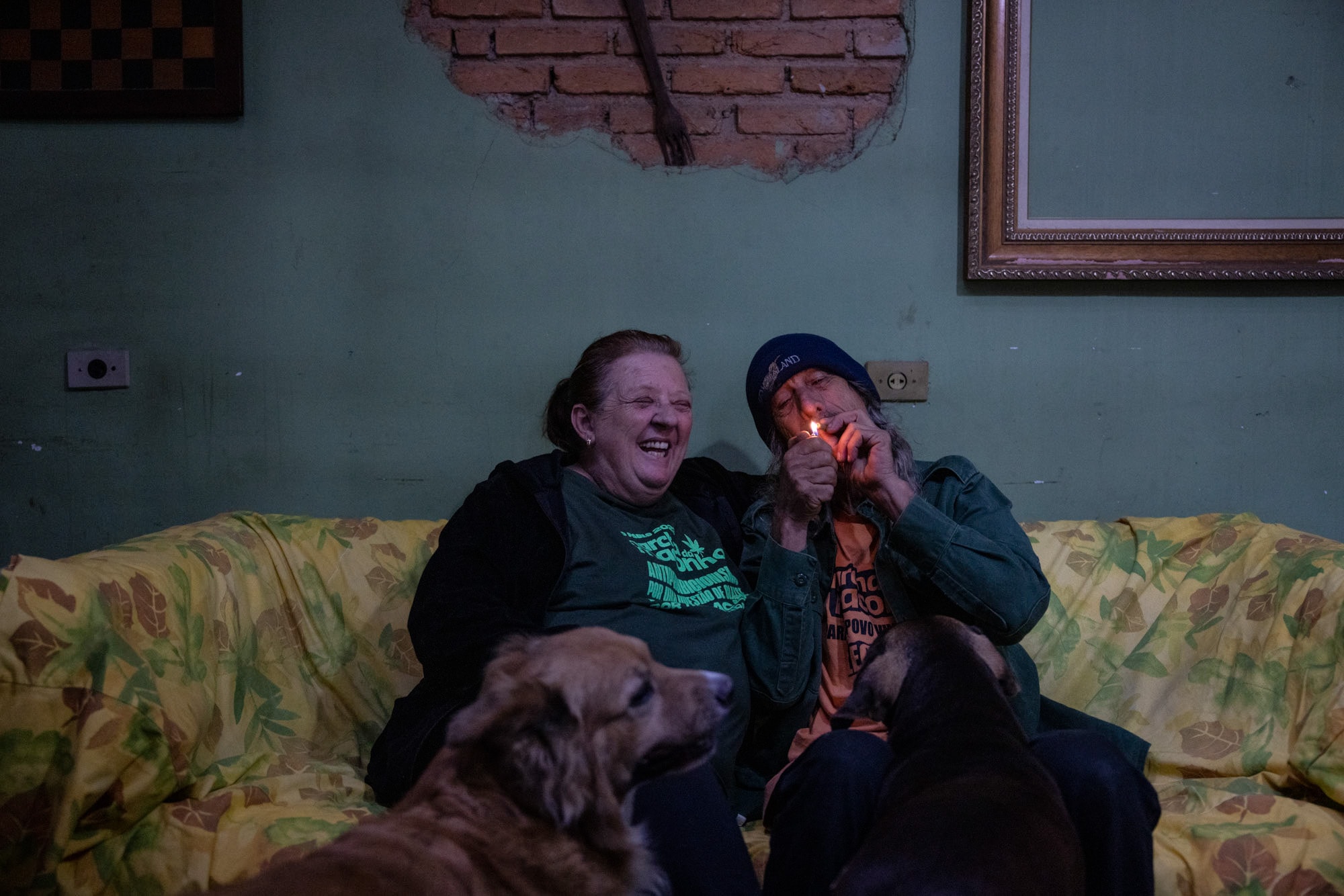
Love, Family, and Marijuana
A testimony of cultural and social changes over the last 50 years in São Paulo, Brazil.
By Rebeca Lerer
Photographs by Victor Moriyama for Vist Projects
As the couple themselves recount, Carlos Raposão and Hulda Apfel had their destinies shaped even in the maternity ward. Both were born in the same São Paulo Hospital, in the city center; he was born in 1960, and she in 1963. Friends since childhood and later sweethearts, they grew up as neighbors in the far southwest of São Paulo, in the metropolitan region of Francisco Morato. In another coincidence, Raposão and Hulda come from traditional families, children of police officers who became agents of the military dictatorship that took hold in the country during their childhood and persisted until the couple’s youth (1964 – 1985). They married early because their families demanded it. “Her father asked me, crying,” says Raposão, opening the gate of the single-story house where they have lived since the 1980s on a narrow street in Jardim Arpoador.
A vintage motorhome parked in front immediately catches the eye. The vehicle was entirely restored by Raposão, a slender guy with small, bright eyes, who becomes your friend even before introducing you to the chaotic and pulsating garden at the back of the residence. He worked as a school van driver and instructor, took the family camping, and even lived at the beach. He overcame depression. He looks at his wife Hulda with affection. The kind that complains with a smile.
In the house, the constant soundtrack is orchestrated by two guinea fowls, three cats, and three dogs that move between the living room and the yard vying for attention. Hulda shares gossip about the neighborhood while serving coffee. She, who was a telephone operator for almost 20 years, is a lady with a sweet voice, smiles, and generous hugs that fill the space around her with satire and much matriarchal wisdom. She talks about her children, talks about her grandson, explains the dirty dishes in the sink, connects facts and comments. She responds to Raposão’s gaze with affection. The youthful love between them is beautiful.
The interview was about marijuana, but with each question, the conversation was diverted by the couple’s experiences over the past decades, which are memories of the city itself. “On the day of our wedding, in September 1981, the first major traffic jam in São Paulo occurred. At that time, there was not this traffic like today. It was the inauguration of Shopping Eldorado, one of the first, and the bridge got stuck with so many cars. I arrived late to my own wedding at Largo da Batata and even forgot my bouquet; my aunt had to improvise with flowers she stole from the church,” Hulda says, laughing. She shows the sepia photo album displaying the happiness of the young couple, analyzing the female looks with short hair and aggressive shoulder pads and men wearing bell-bottom pants and mullets in Mick Jagger cosplays. “She died,” Raposão interrupts, pointing to a beautiful, smiling blonde woman in several photos. “She was our friend. She tried cocaine once and never stopped. She was murdered over a debt of 10 cruzeiros of powder in a dispute in the favela. Such a shame.”
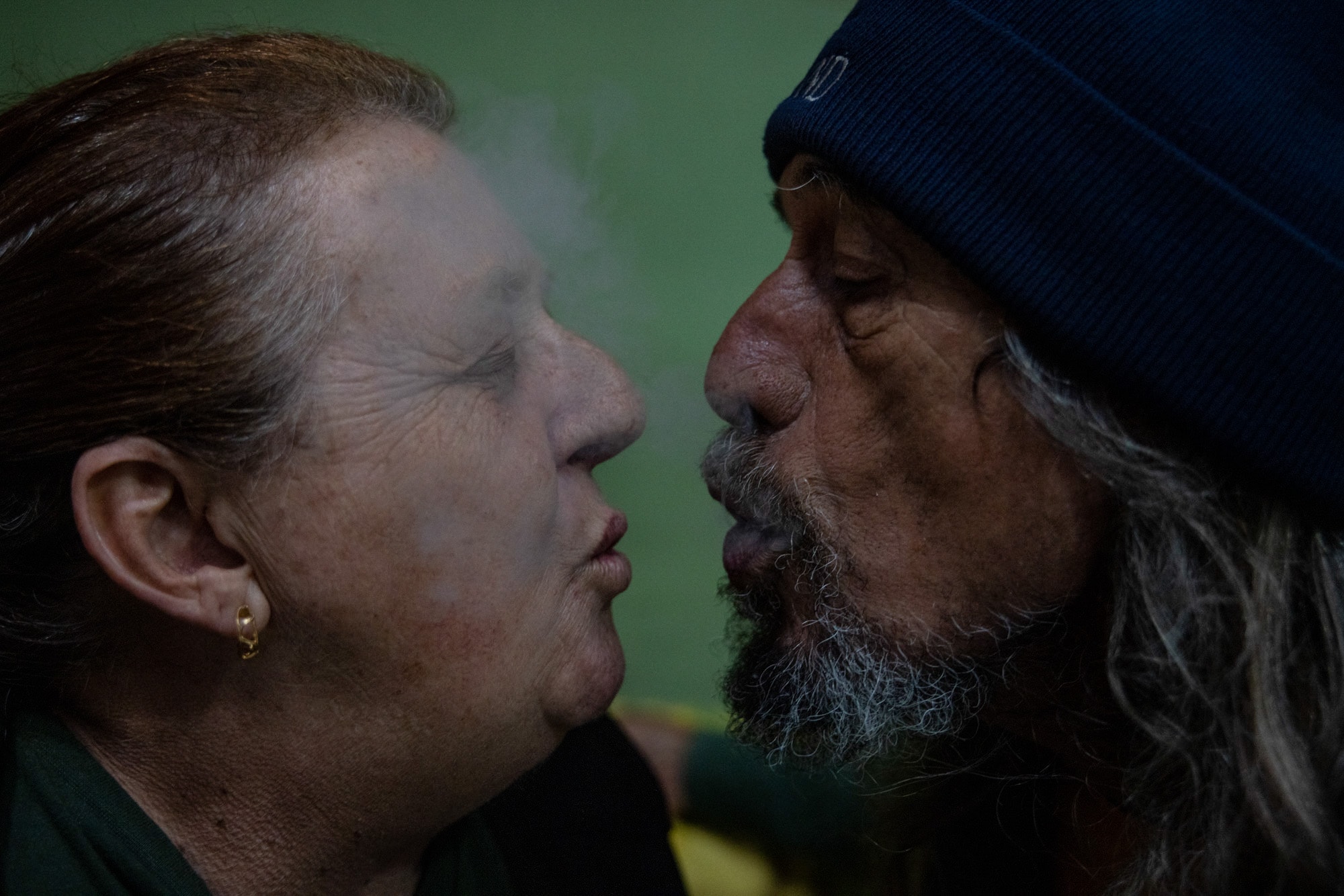
“We had a little bar at home with various types of drinks and liked to throw parties. We lived drunk and arguing, it didn’t work out. We started smoking more marijuana and drinking less, and our fights changed. We argue while laughing; the conversation flows more smoothly. We became pot smokers“
The “bridge” mentioned by Hulda is not a mere detail but an important marker of class and mobility in São Paulo’s urban geography, whose expanded center is located between the two marginal roads that follow the two main rivers crossing the city. The center and the outskirts of the immense metropolis are connected by dozens of bridges and viaducts over the dark and foul-smelling waters of the Pinheiros and Tietê rivers, so polluted and channeled that they resemble sewers. In São Paulo, the land of skyscrapers, those who live “on the other side of the bridge,” like Hulda and Raposão, live with precarious urban infrastructure, overt structural racism, limited access to the city, and especially, the criminalization of poverty, stigma, armed violence, lack of assistance, and police brutality associated with the war on drugs.
Users since adolescence, the couple says that initially, their thing was alcohol. Hulda lights a cigarette and explains, “We had a little bar at home with various types of drinks and liked to throw parties. We lived drunk and arguing, it didn’t work out. We started smoking more marijuana and drinking less, and our fights changed. We argue while laughing; the conversation flows more smoothly. We became pot smokers. In fact, here’s my advice for couples with relationship problems: marijuana helps a lot.” At the time, they dealt with strong prejudice both inside and outside the home. “My father was a policeman, a public safety agent. He proudly kept a newspaper clipping of an arrest he made of a guy with a suitcase full of marijuana at Estação da Luz during the dictatorship. Imagine the tension of having a daughter who smokes weed!” Hulda recounts.
What began as adult therapeutic use that improved the couple’s relationship and reduced their alcohol consumption turned, decades later, into a political fight for legalization. A serious error by the criminal justice system directly affected the family when, in 2011, their son Dimitri, then 22 years old, was wrongly arrested on charges of theft. Hulda knew her son was innocent because he had a toothache and had spent the night of the crime at home with her. “We were still lying down; the police arrived early in the morning and took Dimitri based solely on a statement from another accused. There was no talk,” Raposão says, raising his voice and anger for the first and only time throughout the interview.
